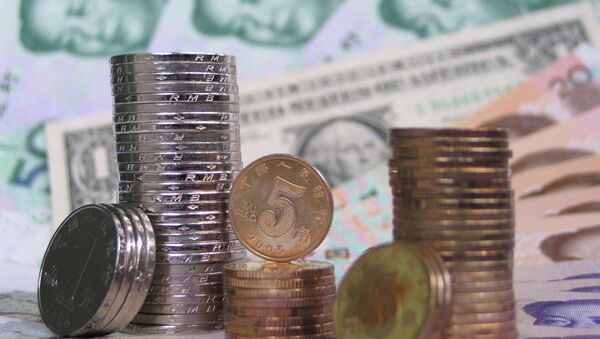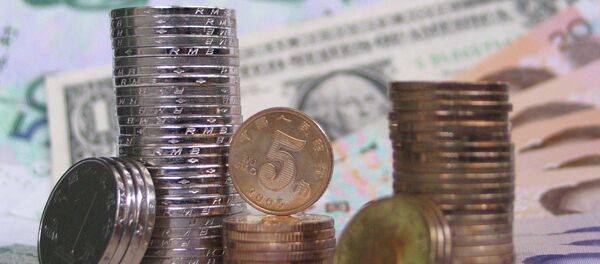China’s top financial officials reluctantly made the decision to devalue the yuan, Eurasian Business Coalition China Program Director Ralph Winnie told Sputnik on Wednesday.
“Until now, they were hedging with their currency, not wanting it to trade at too high or too low levels,” Winnie said. “However, the banking financial instability in Shanghai and the internal economic situation in China forced them to take this step.”
The Chinese government hopes that the devaluation will greatly boost exports and thereby improve expectations on the Shanghai domestic stock market, but it will also have major international repercussions, Winnie warned.
“International investor confidence in China may be shaken,” he said.
Major Western companies still want access to the vast and rapidly growing domestic market in China, but they will be more cautious about how they place their investments to do it, the expert said.
“An economic correction is happening in China, and the government is intervening to try and ensure that it takes place without undue economic and social disruption,” Winnie explained.
The Chinese government is trying to engage in the economic fluctuations in a bid to ensure stability, he added.
Things should calm down, Winnie noted, but how these developments are perceived and interpreted outside China is also very important.
“International investors will be very careful about investing in the Chinese stock exchange and the Shanghai banking system,” Winnie cautioned. “The longer the crisis goes on, the more trouble there will be.”
He concluded, however, that the devaluation “will be a good thing in the long run for China” as well as for international financial stability despite the fact that some people will be nervous in the short term.
Woodrow Wilson Center Senior Northeast Asia Associate Shihoko Goto agreed that the devaluation was driven by the need to increase exports, but warned that it could have negative consequences.
“The devaluation has certainly rattled global markets and increased rhetoric against China, but the question is, will this really lead to a surge in Chinese exports and hurt US growth?” she asked.
However, she continued, “The burning issue for Beijing is whether devaluation will help bolster economic growth, that is — increase exports.”
Chinese exports have been going down primarily because they are losing out to neighbouring Southeast Asian and South Asian countries, Goto noted.
“That equation will not fundamentally change, regardless of the yuan’s value,” she pointed out.
China’s actions have also been interpreted as part of a longer-term process to liberalize the yuan exchange rate; allow it to free float against the US dollar; and establish the yuan as a global reserve currency.



